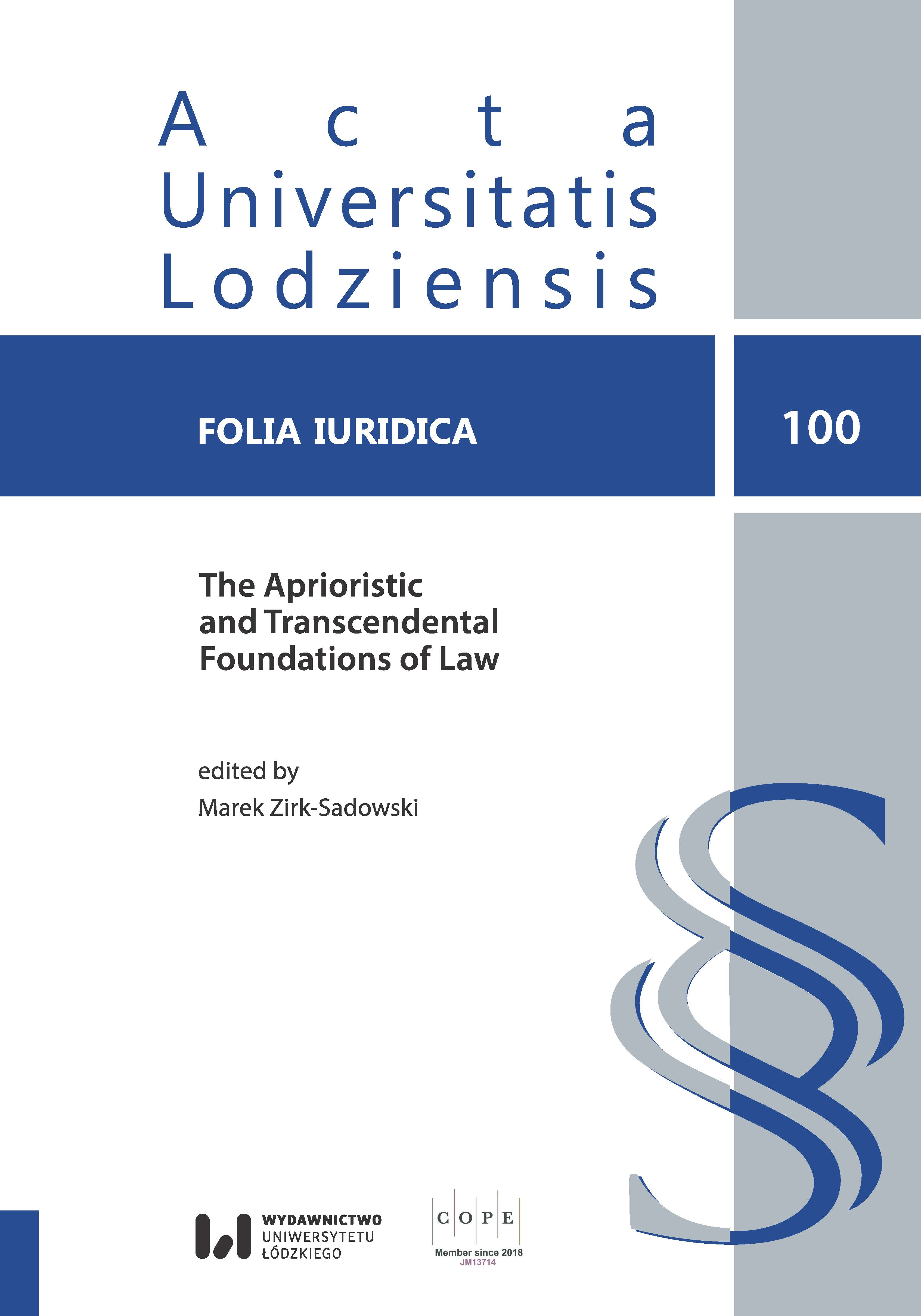Kant’s Apriorical Idea of Law: Two Ways of its Justification
DOI:
https://doi.org/10.18778/0208-6069.100.03Keywords:
idea of law, external freedom, the categorical imperative, radical evilAbstract
Kant proposed an apriorical account of the idea of law, according to which the law’s only legitimate goal is to guarantee for each citizen a possibly broad scope of external freedom compatible with the same scope of all other citizens. However, Kant did not make it entirely clear how this idea is to be justified. This paper presents two ways of justification, drawing on Kant’s view of the human nature. The first one appeals to the apriorical components of this view (rationality, freedom, equality, and dignity), and the second one is based on its empirical components (the ambivalent account of human predispositions).
Downloads
References
Bekrycht, Tomasz. 2019. “The Idea of Positive Law – Immanuel Kant’s Transcendental Argument.” Avant. Pismo Awangardy Filozoficzno-Naukowej 4: 146–157. https://doi.org/10.26913/avant.2019.01.09
Google Scholar
DOI: https://doi.org/10.26913/avant.2019.01.09
Guyer, Paul. 2002. “Kant’s Deductions of the Principles of Right.” In Kant’s Metaphysics of Morals: Interpretive Essays. Edited by Mark Timmons. 23–64. Oxford: Clarendon Press.
Google Scholar
Kant, Immanuel. 1956. Critique of Practical Reason. Translated by Lewis White Beck. New York: Macmillan.
Google Scholar
Kant, Immanuel. 1963. Critique of Pure Reason. Translated by Nokman Kemp Smith. New York: St. Martin’s Press.
Google Scholar
Kant, Immanuel. 1964. Groundwork of the Metaphysics of Morals. Translated by Herbert James Paton. New York: Harper Torchbooks.
Google Scholar
Kant, Immanuel. 1978. Anthropology from a Pragmatic Point of View. Translated by Victor Lyle Dowdell. Carbondale: Southern Illinois University Press.
Google Scholar
Kant, Immanuel. 1991. The Metaphysics of Morals. Translated by Mary Jane Gregor. Cambridge: Cambridge University Press.
Google Scholar
Kant, Immanuel. 1999. “On the Common Saying: ‘This May Be True In Theory, But It Does Not Apply In Practice’.” In Political Writings. Translated by Hugh Barr Nisbet. 61–92. Cambridge: Cambridge University Press.
Google Scholar
Kant, Immanuel. 2008. Religion within the Limits of Reason Alone. Translated by Theodore M. Greene and Hoyt H. Hudson. New York: HarperOne.
Google Scholar
Kant, Immanuel. 2020. Die Metaphysik der Sitten. Berlin: Boer Verlag.
Google Scholar
Paton, Herbert J. 1946. The Categorical Imperative. A Study in Kant’s Moral Philosophy. London: Hutchinson University Library.
Google Scholar
Pogge, Thomas W. 2002. “Is Kant’s Rechtslehre a ‘Comprehensive Liberalism’?” In Kant’s Metaphysics of Morals: Interpretive Essays. Edited by Mark Timmons. 133–158. Oxford: Clarendon Press.
Google Scholar
Uleman, Jennifer K. 2004. “External Freedom in Kant’s Rechtslehre: Political, Metaphysical.” Philosophy and Phenomenological Research 68(3): 578–601. https://doi.org/10.1111/j.1933-1592.2004.tb00367.x
Google Scholar
DOI: https://doi.org/10.1111/j.1933-1592.2004.tb00367.x
Wood, Allen W. 1999. Kant’s Ethical Theory. Cambridge: Cambridge University Press.
Google Scholar
Published
How to Cite
Issue
Section
License

This work is licensed under a Creative Commons Attribution-NonCommercial-NoDerivatives 4.0 International License.














